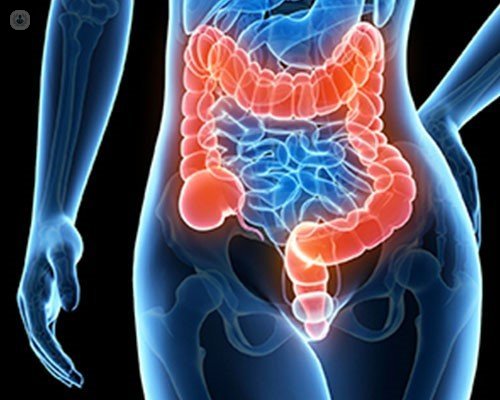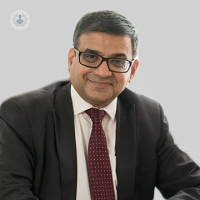The different stages of colorectal cancer
Written by:Colorectal cancer, also referred to as bowel cancer, can develop in any section of the colon (large bowel) or in the rectum (back passage). Cancer beginning in these areas are thought to develop slowly over a period of several years. Before the cancer develops, it usually begins as a polyp, which may eventually change into cancer. Early detection for bowel cancer involves screening to find the polyps before they cause symptoms.

The normal colon and rectum
Colorectal cancer develops in the digestive tract. The digestive system processes food for energy and rids the body of solid waste matter (stool). After food is chewed and swallowed it travels through the foodpipe (oesophagus) to the stomach. There, it is partly broken down and sent to the small intestine (small bowel). The small intestine joins the large intestine, a muscular tube about five feet long.
The first part of the large bowel, called the colon continues to absorb water and mineral nutrients from the food matter and acts as a storage place for waste matter. The waste matter left after this process goes into the rectum, the final six inches or so of the large bowel. From there it passes out of the body through the anus.
The sigmoid colon joins the rectum, which in turn joins the anus, or the opening where waste matter passes out of the body.
Colorectal polyps and cancer
A polyp is a growth of tissue in the centre of the colon or rectum. Having a certain kind of polyp, called adenomatous polyps (also known as adenomas) increase the risk of developing cancer, especially if there are many polyps, or they are large.
The two most common types of polyps in the colon and rectum are:
- Hyperplastic and inflammatory polyps – usually inflammatory polyps are not precancerous and neither are most hyperplastic polyps. Recently it was discovered that some hyperplastic polyps may be precancerous, particularly if they grow into the right or ascending colon.
- Adenomas or adenomatous polyps – polyps, which if left alone could turn into colon cancer and are considered precancerous.
Symptoms of colorectal cancer
Some colorectal cancers can also be found early if patients report any symptoms right away to their doctor. Other conditions such as infections, haemorrhoids, and inflammatory bowel disease can also cause these symptoms. Only a doctor can determine the cause of the same symptoms. It is also possible to have colon cancer and not have any symptoms.
Stages of colorectal cancer
- Polyp – the growth that forms on the lining of the colon or rectum, normally harmless but can turn cancerous if not removed.
- Pre-cancer – the cancer has formed but is not growing.
- Stage I&II – During stage I, the cancer grows through the thin muscles in the colon or rectum and has not affected any nearby lymph nodes. At stage II, the cancer has grown through the colon or rectum but has not spread to other tissues, organs or lymph nodes.
- Stage III – The cancer has either grown into the outer layers of the colon or rectum. It may have affected, tissues, lymph nodes and nearby organs.
- Stage IV – cancer has spread to distant parts of the body, such as the liver or lungs.
Screening for colorectal cancer
Screening can prevent colorectal cancer by detecting the early polyps. Any polyps that are detected are removed, usually by a colonoscopy and are prevented from turning cancerous. For a colorectal cancer screening test, speak to a gastroenterologist or GI surgeon specialist.


